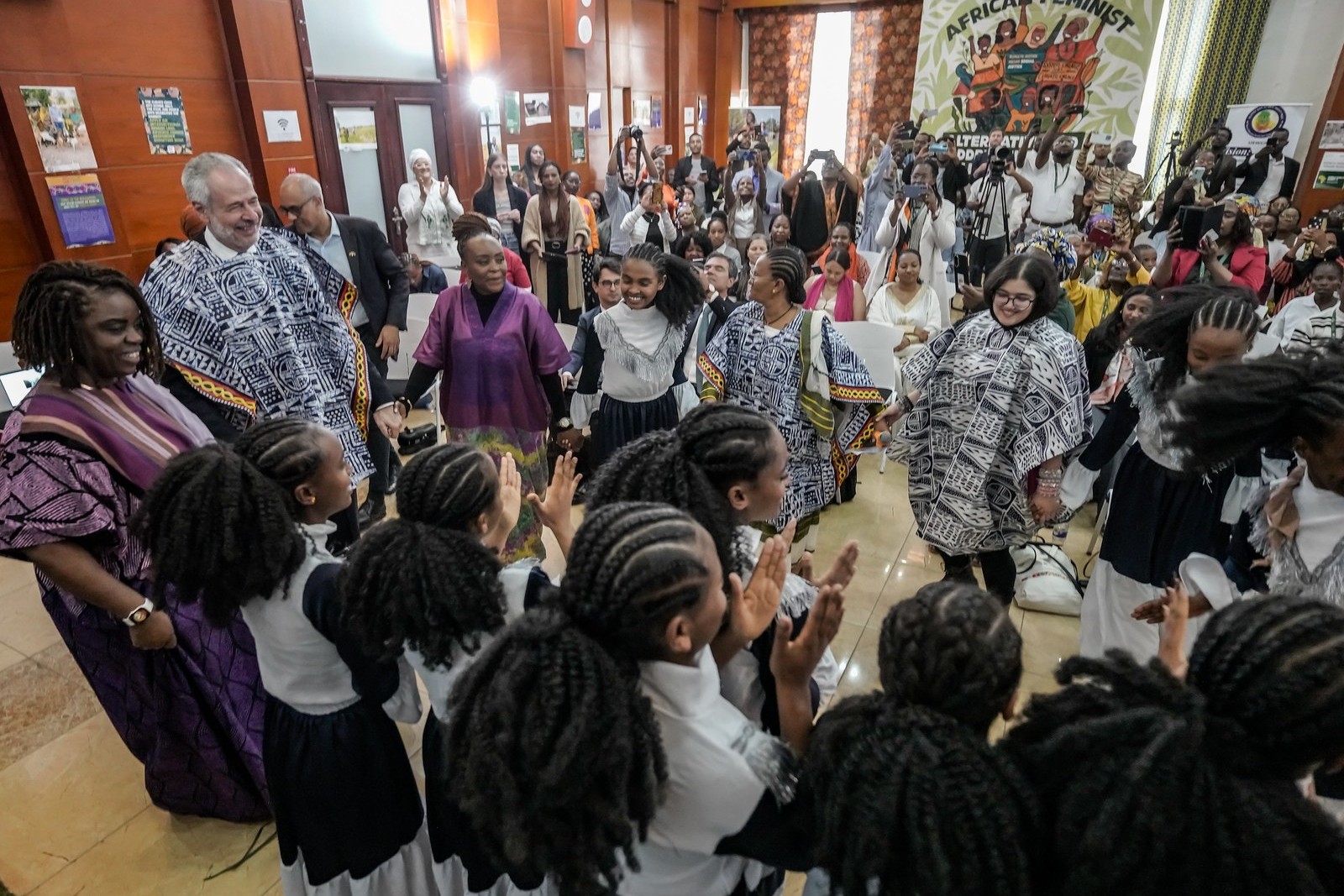COP30 Brasil Bulletin #26 - African Women Unite in the Fight for Equality and Access to Climate Financing
On Gender Day at Africa Climate Week in Addis Ababa, women advocated for fair access to funding and support for local solutions — from regenerative agriculture to clean energy — as key to linking climate justice with women's empowerment. Listen to the report to learn more.

Report: Leandro Molina / COP30 Brasil
Voice-over: Bárbara Menezes and Nycolas Verly
Reporter: In the corridors of Africa Climate Week, in Addis Ababa, Ethiopia, countless stories reveal how climate change intersects with the daily lives of women across the continent. The mission to elevate African women's leadership, advance concrete political proposals, and place feminist demands at the heart of the African Climate Summit declaration and the outcomes of COP30 were the highlights of Gender Day, which brought together more than 140 organizations working across the continent to champion African women and feminist movements in the climate justice debate.
In Sub-Saharan Africa, where data are available, women and girls spend countless hours each day collecting water—a burden that underscores how the lack of safe drinking water disproportionately affects them. Time that could be devoted to education, paid work, entrepreneurship, or political participation is instead consumed by this daily task. Energy poverty compounds the problem: 600 million Africans still live without access to electricity, a shortage that weighs especially heavily on women, who remain confined to manual labor and excluded from full participation in the continent’s economic and political life.
Doris Mpoumou, a Senegalese Special Representative of UN Women to the African Union and the United Nations Economic Commission for Africa, spoke about the complex challenges faced by African women in the face of the climate crisis.
Doris Mpoumou: The discussions, and especially the documents, need to incorporate women's recommendations. They are asking to be present in decision-making spaces, including those of Climate Week. In addition, they are demanding changes in relation to financing. The mechanism needs to be simplified, taking into account the structures of grassroots organizations across the continent.
Reporter: African communities are already practicing adaptation strategies and sustainable resource use that could serve as a global model. However, there is a critical funding gap. It is estimated that the continent needs around 250 billion dollars annually for adaptation and mitigation, but receives only a fraction of that amount, while the global commitment of 100 billion dollars has yet to be fully met.
Priscilla Achakapa, the Nigerian president of the International Women’s Program for the Environment, discussed the challenges confronting African women amid the climate crisis and the innovative solutions now under way.
Priscilla Achakpa: Now, African women have been doing a lot of things to address these issues, innovative ideas. For instance, our organization, the Women Environmental Program, is deeply involved in the issues of aquaponics farming and it is deeply involved in the issues of dry season farming. We are deeply involved in the issues of climate-smart agriculture. All these are innovations to address the impact of climate change.
Reporter: The president of COP30, Ambassador André Corrêa do Lago, who took part in the sessions, stated that gender issues entered climate change discussions belatedly.
André Corrêa do Lago: At COP30, gender issues are part of the negotiations, part of the action agenda, present in every possible context, because we know that women are bringing most of the best solutions to fight climate change and, above all, women are a symbol of resilience.
Reporter: Ana Toni, CEO of COP30, emphasized the importance of the gathering, highlighting the energy and collaboration between African and Brazilian women.
Ana Toni: Let it be a COP for the people, especially for the women who are on the front lines—not only of climate vulnerability, but also as agents of change.
Reporter: The expectation for COP30, which will be held in Belém, Brasil, is for a turning point in how the world fulfills its promises. The consensus is that Africa does not want to merely react to the crisis—the continent wants to lead the debate and show that development and equality can go hand in hand.
Translation: Michel Emmanuel Félix François (POET/UFC)
Proofreading: Tadeu Azevedo (POET/UFC)

